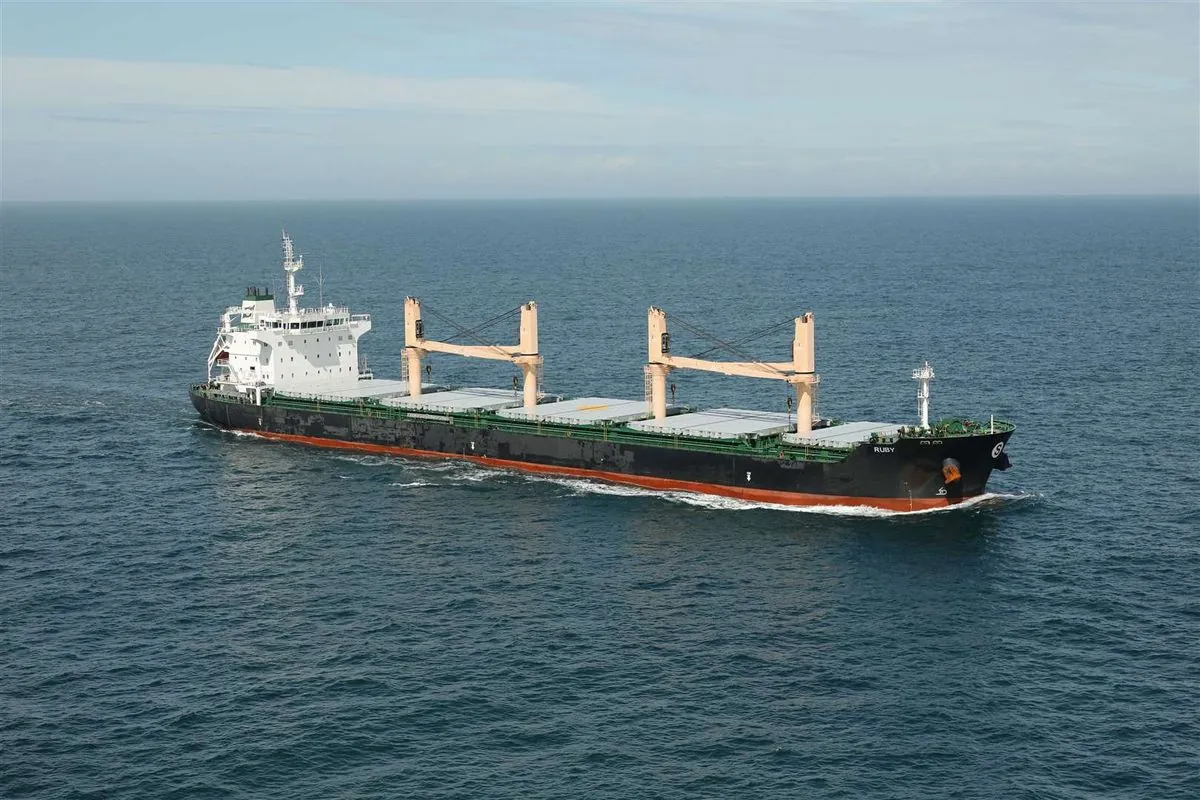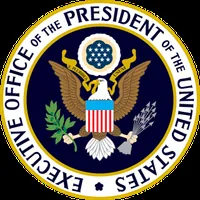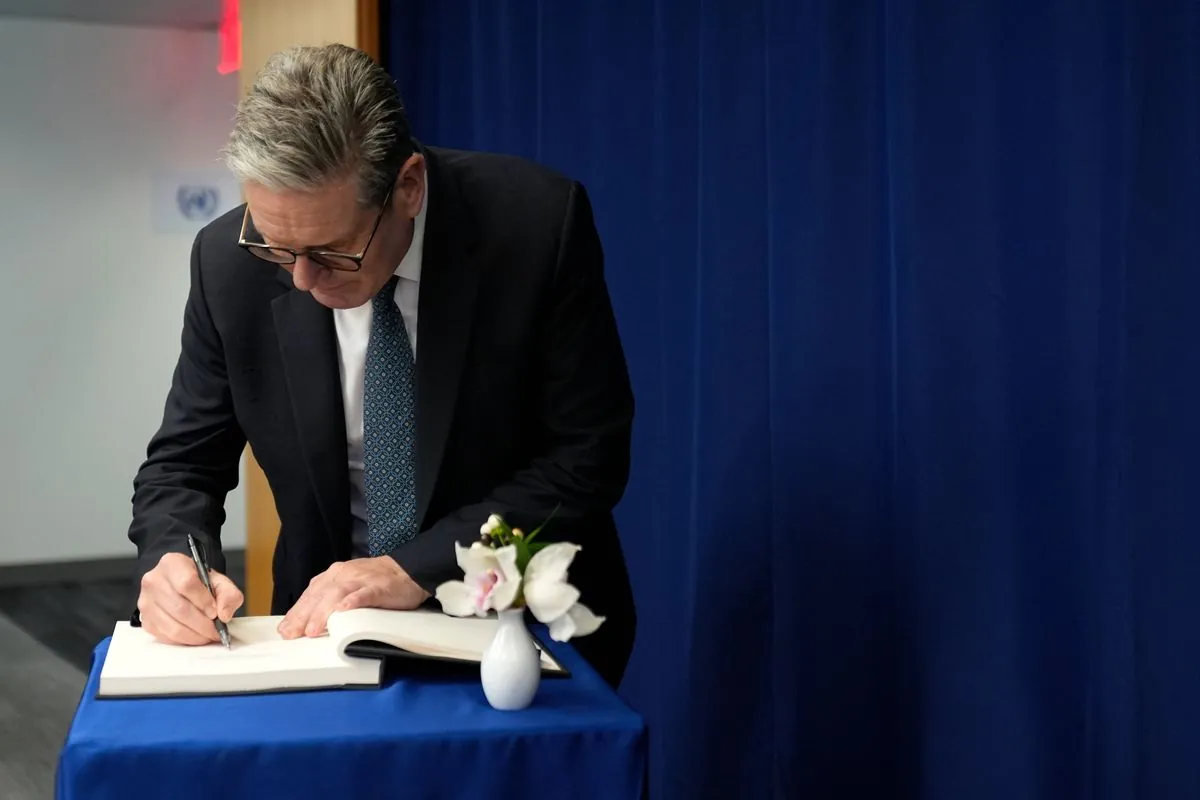Russian-linked Ship with Explosive Cargo Raises Alarm off Kent Coast
A cargo vessel carrying 20,000 tonnes of ammonium nitrate fertilizer, denied entry at multiple ports due to safety concerns, is currently floating near Kent. The ship's condition and cargo have sparked environmental and security worries.

A cargo vessel with Russian connections, carrying a substantial amount of explosive fertilizer, is currently positioned off the Kent coast, having been refused entry at several ports due to safety apprehensions. The Ruby, a Maltese-flagged ship, is transporting 20,000 tonnes of ammonium nitrate fertilizer from Russia, a quantity seven times greater than that which caused the devastating Beirut port explosion in 2020.
The vessel is presently situated three kilometers outside British waters, north of Margate and east of the Thames Estuary, seemingly awaiting authorization to enter the Strait of Dover. To proceed through the Dover Strait en route to Malta, the ship must report its status, including any hazardous cargo, to the relevant authorities.

The Ruby has been seeking a port for docking and repairs after reportedly sustaining hull damage from running aground. Its journey has been marked by rejections, including being ordered to leave Tromso, Norway, and being denied entry into Danish waters.
Jens Wenzel Kristoffersen, a defense analyst at Nordic Defense Analysis and former naval officer, expressed concerns about the vessel's condition and cargo, stating:
"One can question whether it is at all justifiable for the ship to be allowed to sail. There are several reasons for this. It has cracks in the hull. It has rudder problems. It can no longer sail by itself, but must be towed."
The situation has raised significant safety and environmental concerns. Ammonium nitrate, while primarily used as a fertilizer, can be explosive under certain conditions. It was first produced in 1659 by German chemist Johann Rudolf Glauber and has been involved in numerous accidental explosions throughout history.
The ship's cargo of 20,000 tonnes far exceeds the 2,750 tonnes that caused the Beirut disaster in 2020, resulting in 218 fatalities and over 7,000 injuries. This incident serves as a stark reminder of the potential dangers associated with large quantities of ammonium nitrate.
Despite its listed destination being Malta, a spokesperson for the Maltese transport ministry has stated that the vessel would not be permitted in Maltese waters without first emptying its cargo. The ship originated from Kandalaksha on Russia's Kola peninsula, where it is believed to have initially run aground.
During its stop in Tromso for repairs, authorities discovered six deficiencies, including a cracked hull, unlawful fuel, various safety issues, and expired crew documents. The vessel has also reportedly experienced engine and rudder problems.
While ammonium nitrate is generally stable during transport, its explosive potential has led many countries to implement strict regulations on its storage and transportation. The compound's properties can change with temperature, and it can decompose explosively under high temperatures or strong shock waves.
The Ruby is currently owned by a Dubai-registered company and has been chartered by another Dubai-registered entity with Russian connections. This situation has reignited concerns about potentially unseaworthy vessels traversing the Strait of Dover, with campaigners previously warning about the risk of environmental damage from Russian oil tankers.
As the situation unfolds, authorities and experts continue to monitor the vessel's status, weighing the potential risks against the need for a resolution to this complex maritime challenge.


































